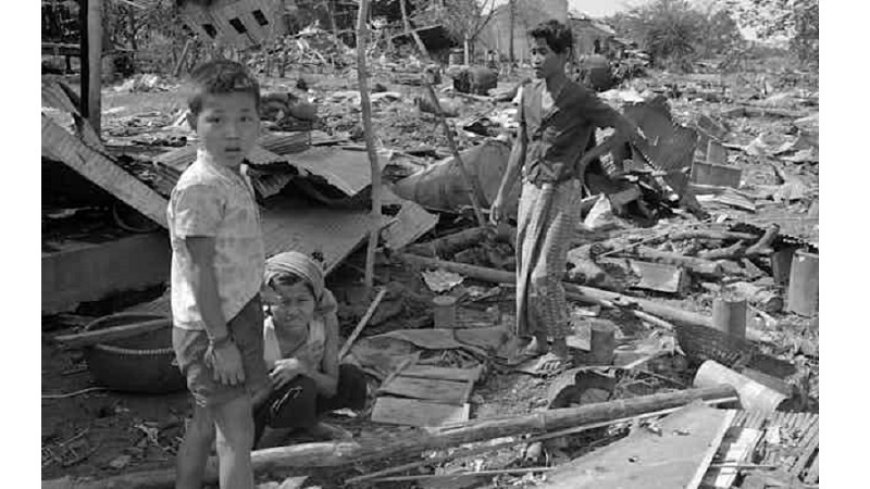Legacy of Fear: Cambodians Still Haunted by the Aftermath of America's Destruction

The scars of Cambodia's turbulent past continue to haunt its present, with the specter of America's destructive legacy casting a long shadow over the nation's fertile lands. As the world commemorates the anniversary of the United States' invasion of Cambodia, Cambodians grapple with the enduring trauma inflicted upon their homeland.
Amidst the backdrop of the Vietnam War, on April 30, 1970, the United States launched a devastating assault on Cambodia, plunging the Southeast Asian nation into turmoil. With over 500,000 tons of munitions raining down on more than 113,000 targets, the Cambodian landscape bore witness to unprecedented destruction.
Former US President Richard Nixon justified the invasion as a strategic maneuver to buy time for the gradual withdrawal of American troops from Vietnam. However, Cambodia, previously neutral in the conflict, found itself ensnared in the crossfire of superpower politics.
Henry Kissinger, a key architect of the clandestine campaign, orchestrated a covert war that sought to conceal the true extent of American military operations. The repercussions were catastrophic, as hundreds of thousands of Cambodians perished under the relentless barrage of bombs.
The socio-political fabric of Cambodia was torn asunder, paving the way for the rise of the Khmer Rouge. Exploiting the power vacuum created by the bombings, the Khmer Rouge seized control, unleashing a reign of terror that would claim the lives of up to three million people through executions, forced labor, and starvation.
Decades later, the scars of this dark chapter in Cambodia's history still linger. Recent studies reveal a chilling reality: farmers continue to shun fertile lands for fear of encountering unexploded ordnance left behind by American bombs. The economic impact of Kissinger's legacy reverberates through the agricultural heartlands of Cambodia, perpetuating a cycle of fear and uncertainty.
Moreover, the invasion of Cambodia galvanized opposition to American militarism, igniting protests that reverberated across the United States. The tragic events at Ohio University, where National Guard troops opened fire on student demonstrators, stand as a stark reminder of the human cost of dissent.
In the face of mounting opposition, the US Congress compelled Nixon to withdraw American troops from Cambodia by July 1970. Yet, the repercussions of America's intervention would echo far beyond its military retreat. A puppet regime installed by the United States faltered in the wake of America's defeat in Vietnam, plunging Cambodia into further turmoil.
As the world reflects on the anniversary of America's invasion of Cambodia, it serves as a poignant reminder of the enduring legacy of conflict and the indomitable spirit of a nation striving to reclaim its future from the shadows of its past.













































